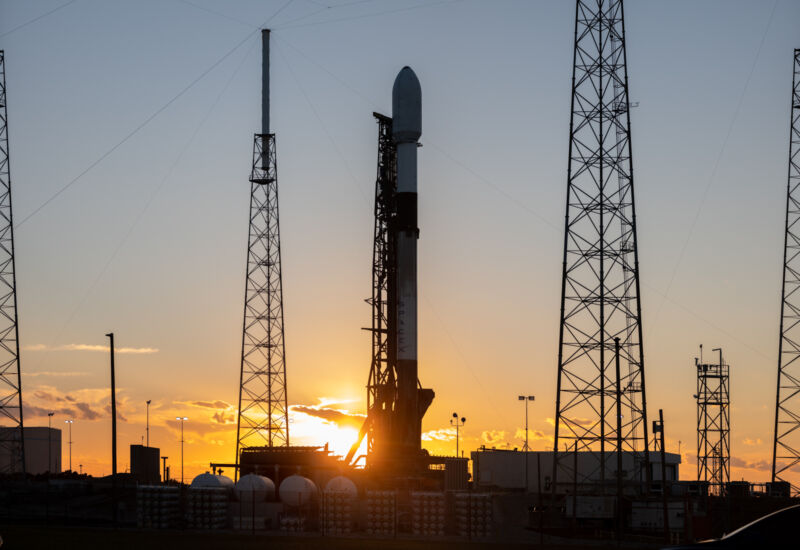
Welcome to Edition 5.23 of the Rocket Report! It has been a difficult week for rocket aficionados, with the back-to-back failure of Virgin Orbit’s LauncherOne, and ABL Space’s RS1 vehicles, on Monday and Tuesday. I certainly hope both companies can find and fix the technical problems, and get into orbit soon.
As always, we welcome reader submissions, and if you don’t want to miss an issue, please subscribe using the box below (the form will not appear on AMP-enabled versions of the site). Each report will include information on small-, medium-, and heavy-lift rockets as well as a quick look ahead at the next three launches on the calendar.

Virgin Orbit launch from UK fails to reach orbit. After the Cosmic Girl aircraft made a much-hyped takeoff from Cornwall, England, on Monday night, Virgin Orbit’s mission ended in failure when the second stage did not properly put its nine payloads into orbit. In a statement published on Thursday morning, Virgin Orbit provided a little bit more information about the failure: “At an altitude of approximately 180 km, the upper stage experienced an anomaly. This anomaly prematurely ended the first burn of the upper stage.”
Securing those assets … This was the company’s first failure after an initial demonstration mission, in 2020. Since then LauncherOne had successfully reached orbit four times in a row, indicating that the launch system was fundamentally sound. The failure comes at an unfortunate time for Virgin Orbit, which, Ars reports, is struggling to raise funds. After Virgin ceased a fundraising effort in November, it turned to founder Richard Branson for an additional $20 million in December 2020. However, this convertible note came with strings attached—it granted Branson a first-priority secured interest. Essentially, then, Virgin Orbit appears to have pledged all of its assets to Branson. (submitted by Ken the Bin)
ABL Space debut launch fails. The first flight of ABL Space Systems’ RS1 rocket failed to reach orbit on Tuesday, Space News reports. The company said that the nine engines on the RS1 vehicle’s first stage shut down simultaneously after liftoff, causing the vehicle to fall back to the pad and explode. The company did not disclose when after liftoff the shutdown took place or the altitude the rocket reached. The explosion damaged the launch facility, but no personnel were injured.
Next attempt forthcoming … “This is not the outcome we were hoping for today, but one that we prepared for,” the company said. The two-stage vehicle has nine of its E2 engines in its first stage and one vacuum-optimized E2 engine in the upper stage, using kerosene and liquid-oxygen propellants. The vehicle is designed to launch from facilities with minimal infrastructure and lift up to 1.35 metric tons to low-Earth orbit. ABL has raised several hundred million dollars from venture capital firms, with Lockheed Martin as both a strategic investor and a major customer. (submitted by Ken the Bin and EllPeaTea)
RFA to launch from Northern Scotland. The German launch company Rocket Factory Augsburg announced Wednesday that its debut launch would take place from SaxaVord Spaceport, located on the most northerly of the Shetland Islands in Northern Scotland. The Scottish spaceport is ideally located for RFA to launch payloads at a high cadence into polar Sun-synchronous orbits, the company said. According to the news release, RFA will have exclusive access to “Launch Pad Fredo” at the spaceport.
RFA One to fly this year? … From an accompanying image, it appears that a large, steel launch support structure has already been constructed on site. (RFA calls the structure a “launch stool,” but this family-friendly publication will use an alternative term.) The company says the debut launch of its RFA One vehicle could occur by the end of 2023 and that stage testing is due to begin during the middle of this year. We’ll have to see if that happens, but it does seem like RFA’s first orbital launch is not that far into the future. (submitted by Brangdonj, EllPeaTea, and Ken the Bin)
European launch race remains wide open. With the failure of Virgin Orbit’s debut launch from the United Kingdom, the ability to proclaim oneself the first country and company to launch into orbit from Western Europe remains open. The RFA One launch noted above is one contender. Another is Isar Aerospace, which has an agreement to launch from the Andøya Spaceport in Norway, NRK reports.
Sweden, too … The German company’s Spectrum rocket can launch about 1 metric ton into low-Earth orbit, and Isar is attempting to make its debut orbital attempt this year. But wait, there’s more. His Majesty the King of Sweden, Carl XVI Gustaf, will be visiting the Esrange Spaceport in the northern part of Sweden on Friday to “cut the ribbon” on an orbital complex there. However, an orbital launch tenant at Esrange has yet to be announced. (submitted by audunru)
Electron gets a new US launch date. After standing down in late 2022 due to weather issues, Rocket Lab has set a new launch date for Electron’s first flight from Virginia Space’s Mid-Atlantic Regional Spaceport. The launch window for the “Virginia is for Launch Lovers” mission is scheduled to open on January 23, with backup dates through early February. The daily launch opportunity runs from 6 pm to 8 pm ET (23:00 to 1:00 UTC).
Hoping for calmer winds in the new year … This mission will deploy three satellites for radio frequency geospatial analytics provider HawkEye 360. The mission is the first of three Electron launches for HawkEye 360 in a contract that will see Rocket Lab deliver 15 satellites to low-Earth orbit by the end of 2024. Electron’s US debut was delayed by more than a year while the company sought to obtain a launch license, and the December attempt was scuttled by unfavorable upper-level winds during the launch window. (submitted by Ken the Bin)
https://arstechnica.com/?p=1908951

